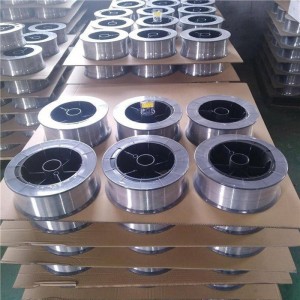Welding is an essential process in the manufacturing and repair of various metal structures. The process requires a welding wire, which is a critical component in the welding process. Welding wire is used to join metals together through the process of fusion. In this article, we’ll explore the composition of welding wire and how it affects the welding process.
Understanding Welding Wire
Welding wire is a thin, metal wire that is used as an electrode in the welding process. It is used in a welding machine, where an electric current passes through the wire, creating an arc. The heat from the arc melts the wire and the metal it is being applied to, fusing the two metals together.
Types of Welding Wire
There are different types of welding wire, each with unique properties that make it suitable for specific welding applications. Some of the most common types of welding wire include:
Carbon Steel Welding Wire
Carbon steel welding wire is used for general-purpose welding of carbon steel. It is the most commonly used welding wire due to its affordability and availability.
Stainless Steel Welding Wire
Stainless steel welding wire is used for welding stainless steel. It contains high levels of chromium and nickel, which make it resistant to corrosion.
Aluminum Welding Wire
Aluminum welding wire is used for welding aluminum and aluminum alloys. It is lightweight, making it ideal for applications where weight is a concern.
Copper Welding Wire
Copper welding wire is used for welding copper and copper alloys. It has excellent electrical conductivity and is often used in electrical applications.
Composition of Welding Wire
The composition of welding wire varies depending on the type of wire. However, most welding wire is made up of a combination of metals, including:
Steel
Steel is the primary component of most welding wire. It is used as a base metal due to its strength and durability.
Copper
Copper is often added to welding wire to improve its electrical conductivity. It also helps to improve the wire’s corrosion resistance.
Nickel
Nickel is added to welding wire to improve its strength and corrosion resistance.
Chromium
Chromium is added to welding wire to improve its corrosion resistance. It is often added to stainless steel welding wire.
Aluminum
Aluminum is added to welding wire to improve its strength and reduce its weight. It is often added to aluminum welding wire.
Factors to Consider When Choosing Welding Wire
Choosing the right welding wire is essential to achieving a successful weld. Some of the factors to consider when choosing welding wire include:
Type of Metal Being Welded
The type of metal being welded will determine the type of welding wire needed. For example, carbon steel welding wire is used for welding carbon steel.
Welding Position
The position of the weld will affect the type of welding wire needed. For example, a vertical weld requires a different welding wire than a horizontal weld.
Wire Diameter
The diameter of the welding wire will affect the amount of heat generated during the welding process. A thicker wire will generate more heat than a thinner wire.
Welding Current
The welding current will affect the type of welding wire needed. For example, a higher current requires a thicker welding wire.
Conclusion
Welding wire is a critical component in the welding process. Understanding the composition of welding wire and how it affects the welding process is essential to achieving a successful weld. Choosing the right welding wire for the job is also crucial to achieving a strong and durable weld.
FAQs
-
What is welding wire made of?
Welding wire is made of a combination of metals, including steel, copper, nickel, chromium, and aluminum.
-
What is the most common type of welding wire?
The most common type of welding wire is carbon steel welding wire due to its affordability and availability.
-
What factors should be considered when choosing welding wire?
Factors to consider when choosing welding wire include the type of metal being welded, welding position, wire diameter, and welding current.
-
Why is it important to choose the right welding wire?
Choosing the right welding wire is crucial to achieving a successful weld. The wrong wire can lead to a weak and unreliable weld.
-
What is the purpose of welding wire?
Welding wire is used to fuse metals together through the process of fusion, creating a strong and durable weld.

Post time: Oct-12-2023
